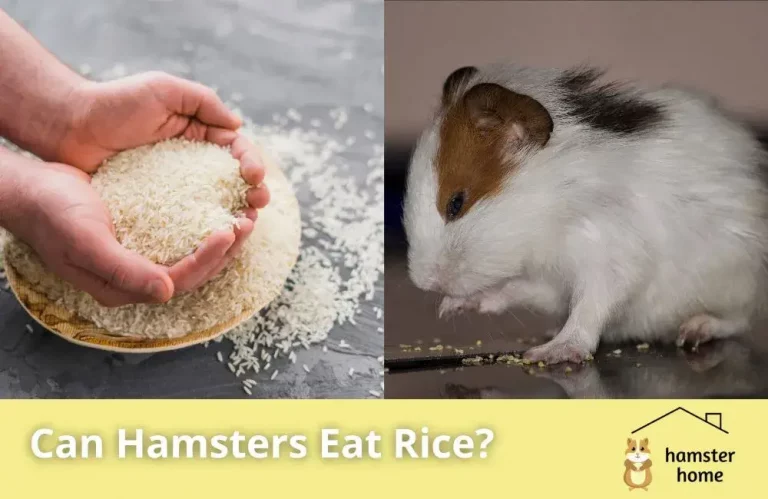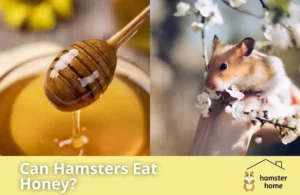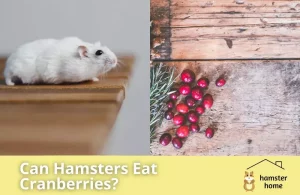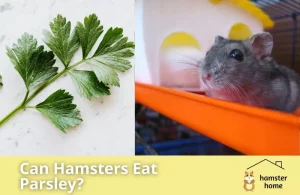Yes, rice is safe for hamsters. You can feed your little hammy a few rice grains as a treat. But there are a few things you must keep in mind. As humans, we can make rice a regular part of our diet, but in the case of hamsters, it is different as they have a tiny and fragile gut. Any negligence can cause damage to the health of your hammy.
However, this doesn’t mean that you shouldn’t be treating your hamster will rice at all. After having a sound knowledge about hamsters and their relation with rice, you can get several benefits from feeding rice. Let’s dive a bit deeper into the topic so you can have a better understanding.
Preparing Rice For Hamsters
Hamsters can eat both cooked and uncooked rice, but raw or uncooked rice as snacks are best for your hamster. A few grains of uncooked rice is a good treat for hamsters. Uncooked rice does not stick in the mouth of hamsters and can be swollen easily without any risk of choking.
You can also feed your hamster boiled rice, but it could be risky because such rice can be sticky. They could stick inside the mouth and can cause difficulty in breathing. Boiled rice can also stuck inside their cheek pouch, and once they start to rot, it can cause severe health issues for your pet. So, if you are going to feed your hamster boiled rice make sure they aren’t too sticky, moist, or overcooked.
Health Benefits of Rice for Hamsters
Rice doesn’t add much nutrition to hamsters’ diet as only a few grains are fed occasionally. Rice should be considered as a treat, not an addition to their natural diet. As mentioned before, you should provide only a few grains once or twice a week maximum.
Risks of Feeding Rice to Hamsters
Though rice is not toxic for hamsters in any way, overfeeding can cause serious health issues. Overfeeding can mainly cause constipation as it does in humans, but it could have more severe consequences for your little hammy as their digestive system is quite fragile. In the worst-case scenario overfeeding can cause hardening of the intestines resulting in severe illness for hamsters. On top of that, it also results in obesity.
If you are feeding boiled rice to your hammy, make sure that water content is minimal. As a responsible parent, you should perfectly cook rice with minimum stickiness. To make rice less sticky immerse them in cold water to remove rinse (white chalky powder forms when rice grains rub against each other). It will make rice relatively nonstick and safe for your hammy.
Alternatives of Rice
As the rice isn’t much beneficial for your hamster, you may be looking for some alternative. Here are some treats that are much healthier than rice:
- Crackers
- Peanut butter
- Lettuce
- Broccoli
- Celery
- Kale
- Peas
- Peanuts
- Cabbage
- Raspberry
- Sunflower seeds
- Romaine lattice
- Pear
- Spinach
- Blueberries
- Hay
- Sweet potatoes
- Grapes
- Cucumber
FAQs
Any type of rice can be fed to hamsters, but brown rice and whole-grain rice are considered great because of their nutritional values. They contain husk, a rich source of Vitamin B, Fiber and iron, and other essential nutrients. But still, it does not make rice a significant component of the hamster’s diet.
Rice Krispies are just toasted rice. They are safe for the hamsters to eat although they have some sugar content, they are considered to be safe. One or two Krispies should be fed to hamsters at a time. Overeating can cause health hazards.
Uncooked have a longer life span. They can remain edible from 6 months to 1 year. On the other hand, cooked rice only remains edible for only 4 days. Ensure that the rice is not expired before feeding it to your hamster.
Hamsters And Rice In A Nutshell
Rice is safe for your hamster, but it does not add significant nutritional value to its diet. It should only be fed twice a week, two or three grains at a time. Rice is not the natural part of hamsters’ diet, so it should only be considered a treat. Overeating can cause health hazards. Therefore don’t think about making it an integral part of your pet’s diet.
We recommend you stick with the balanced diet of your hamster, including fruits, vegetables, and seeds, for the better health of your pet. As an owner, your responsibility is to take care of your pet’s health and keep a strict check on its diet.







